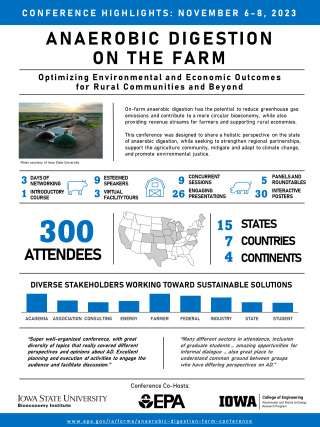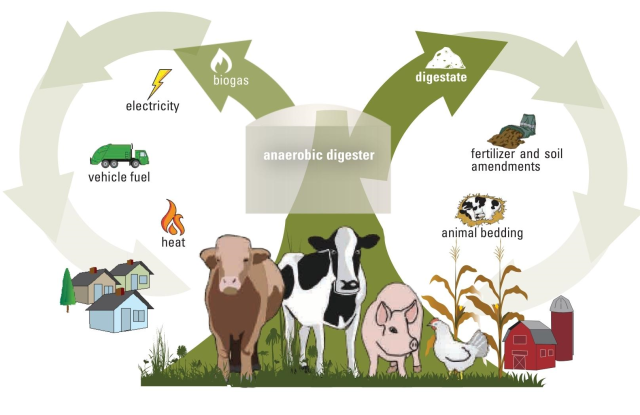Anaerobic Digestion on the Farm Conference
Optimizing Environmental and Economic Outcomes for Rural Communities and Beyond
Sponsored by EPA, Iowa State University, and the University of Iowa. Check this page for updates on the conference!
On this page:
- About the Conference
- What to Expect
- Virtual Tours
- Who Should Attend
- Conference Schedule (see Program)
- Pre-Conference Agenda
- Kickoff Speakers
- Keynote Speakers
- Registration
- Call for Abstracts
- Introduction to Anaerobic Digestion
- Anaerobic Digestion Resources – NEW ITEMS!
- Submit email to receive updates (at bottom)

About the Conference
EPA Region 7, Iowa State University, and the University of Iowa are co-hosting a regionally focused conference on anaerobic digestion (AD) in agriculture on Nov. 6-8, 2023, at Iowa State University in Ames, Iowa.
What to Expect
The purpose of the conference is to engage stakeholders; facilitate information exchange on anaerobic digestion in agriculture; and focus on solutions for the various challenges facing those operating an AD facility or those interested in owning and operating their own facility.
Virtual Tours
As a part of the conference, you’ll be able to visit various AD facilities and operations via virtual tours.
Who Should Attend
AD stakeholders, farmers, policy makers, developers, financers, consultants, scientists, students, and other interested individuals. In particular, we encourage participation from individuals and organizations interested in sharing ideas, building partnerships, and developing well-rounded solutions within the Region 7 states of Iowa, Kansas, Missouri, and Nebraska.
Pre-Conference Agenda
Introduction to Anaerobic Digestion Workshop
Monday, Nov. 6, from 1 to 4 p.m.
South Ballroom
Iowa State University Memorial Union
Please join us for an interactive and engaging workshop focused on the basics of on-farm anaerobic digestion (AD) to kick off the upcoming conference. The workshop agenda features a series of short presentations, hands-on demonstrations, videos, and facilitated question-and-answer sessions. Participants should leave the workshop with a better understanding of AD, feeling more equipped to pursue their own AD projects.
To participate in this pre-conference session, you will also need to register for the three-day conference.
Facilitators: Daniel Andersen, Iowa State University; Jake Dunton, EPA; Stephanie Hayes Richards, Gnarly Tree Sustainability Institute; and Craig Just, University of Iowa
Draft Agenda
- Welcome and introductions
- Introduction to AD and biogas
- AD system design and technology
- Opportunities for AD in the U.S.
- Benefits of AD
- Introduction to the AgStar Program
- Potential financing mechanisms for AD
- Closing remarks
Kickoff Speakers
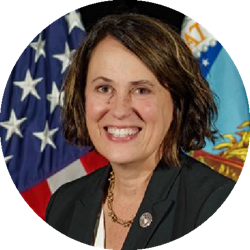
Theresa Greenfield
Theresa Greenfield is the U.S. Department of Agriculture's Rural Development State Director for Iowa. She is a committed public servant with a career focused on community development, housing, and real estate. She grew up on a small family farm outside the small town of Bricelyn, Minnesota, and graduated with a degree in design and human environment from Minnesota State University Mankato.
After graduation, Greenfield worked as an urban planner and real estate developer. She became president of the Iowa division of Rottlund Homes in 2007 and most recently served as president of Colby Interests, a real estate firm based in Des Moines, Iowa. She has been a lifelong advocate for rural communities.
Kayla Lyon

Kayla Lyon is the eighth director of the Iowa Department of Natural Resources (IDNR) and is thrilled to serve in this role, combining her agricultural background with her passion and love for natural resources.
Lyon spent her early career in policy and government affairs working on agriculture, renewable fuels, water quality, and environmental issues while representing farmers and agribusiness. She served as a policy advisor for Governors Branstad and Reynolds before being appointed as the first female director of IDNR in July 2019.
Lyon often joins her staff in the field and utilizes her agricultural upbringing to find ways for agriculture and natural resources to thrive. In her free time, she enjoys outdoor activities with her family.
Meg McCollister
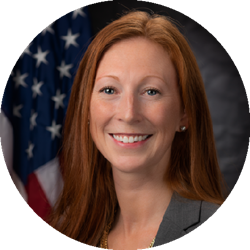
Meg McCollister has a strong advisory and advocacy background with nearly two decades of experience serving nonprofits, candidates for public office, and public policy campaigns.
Born in Kansas and raised in both Kansas and Missouri, she received her bachelor’s degree from the University of Kansas before attending the University of Missouri-Kansas City School of Law, where she earned her Juris Doctorate with an emphasis in urban, land use and environmental law.
After law school, McCollister and her husband moved to Sonoma County, California, where she served on the Board of Directors for Sonoma County Conservation Action and worked on environmental campaigns and in local government. Upon her return to the Midwest, she has continued to serve as an advisor and strategic thinker in areas including environmental, health, and social improvement initiatives as well as communication strategies.
McCollister resides in Kansas City with her husband, three children, and rescued greyhound. She enjoys running, hiking, and exploring the outdoors.
Dr. Lisa Schulte Moore
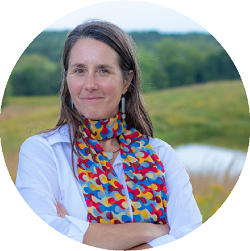
Dr. Lisa Schulte Moore is a professor in the Department of Natural Resource Ecology and Management and co-director of the Bioeconomy Institute at Iowa State University. She conducts research and teaches in the areas of agriculture, ecology, forestry, and human-landscape interactions. Her research addresses the strategic integration of perennials into agricultural landscapes to support new agricultural markets and to meet societal goals for healthy soils, clean water, abundant wildlife, and inspiring recreational opportunities. She is a fellow of the Leopold Leadership Program, Ecological Society of America, and MacArthur Foundation (2021 fellow).
Additionally, Schulte Moore is a co-founder of the Science-Based Trials of Rowcrops Integrated with Prairie Strips (STRIPS) project, which pioneered the prairie strips conservation practice. She is also lead developer of People in Ecosystems/Watershed Integration (PEWI), a simple web-based educational game designed to help people understand human impacts on the environment and improve the management of natural resources. She directs C-CHANGE, an Iowa State University Presidential Interdisciplinary Research Initiative and USDA-NIFA Sustainable Agricultural Systems Coordinated Agricultural Project.
Schulte Moore has published over 100 scientific and educational articles. Her work has been covered by the BBC, Corn and Soybean Digest, National Public Radio, New York Times, Successful Farming, and Washington Post, among other farm and general interest media outlets.
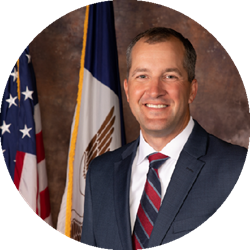
Mike Naig
Mike Naig grew up on a family farm in the northwest corner of the state near Cylinder, Iowa, and he continues to be involved in the operation today. Naig is a graduate of Buena Vista University in Storm Lake with degrees in biology and political science. He and his wife Jaime have three boys.
Naig was elected as the 15th Iowa Secretary of Agriculture in November 2018 and was re-elected in 2022. As Secretary, he is committed to lead efforts to expand economic opportunities for Iowans and is an advocate on behalf of the hard-working men and women who keep us fed and fueled.
Rod Snyder
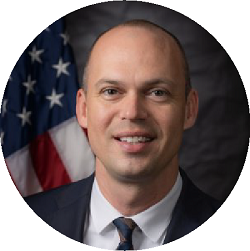
Rod Snyder was appointed senior advisor for agriculture to the EPA Administrator in October 2021. He is recognized for his nearly two decades of leadership at the intersection of agricultural and environmental policy.
From 2014-2021, Snyder served as president of Field to Market: The Alliance for Sustainable Agriculture, which is the largest multi-stakeholder initiative working to advance the sustainability of commodity crop farming in the United States. In this role, he forged science-based consensus among diverse stakeholders across the food and agriculture value chain on complex issues such as climate change, water quality, biodiversity, and pest management. In 2015, Snyder co-founded the Sustainable Agriculture Summit, which has grown to be the largest and most prominent annual sustainable agriculture conference in North America.
Prior to his time at Field to Market, Snyder held positions as public policy director for the National Corn Growers Association and government affairs leader for CropLife America. He has been a longtime champion of agricultural solutions to climate change and has, on two occasions, organized farmer delegations to participate in U.N. Climate Summits in Paris and Copenhagen.
Snyder holds a Bachelor of Arts in political science from Eastern University in St. Davids, Pennsylvania. He resides on his family farm in Shenandoah Junction, West Virginia.
Keynote Speakers
Jerry Flint
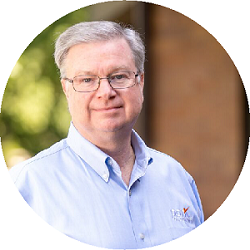
Jerry Flint is the chief administrator officer for the National Pork Board, based in Des Moines, Iowa. Previously, he joined Corteva Agriscience in 2010 and held positions specifically linked to global business management, sustainability, external relations, regulatory approvals, and product research and development. He also served as director of regulatory affairs at Monsanto.
Flint currently serves on the Dean’s Advisory Council for the College of Agriculture at Purdue University. Previously, he served as past president of the American Seed Trade Association, past chair of the Biotech Innovation Organization Food and Agriculture Governing Board, and has served on the USDA Agriculture Advisory Council.
He has both a doctorate and Master of Science degree in crop science from the University of Kentucky (Lexington) and an undergraduate degree in agriculture from Purdue University in West Lafayette, Indiana.
Marcelo Mena-Carrasco

Marcelo Mena-Carrasco is CEO of the Global Methane Hub, an international alliance for developing and implementing global methane reduction solutions. In 2021, he launched the Global Methane Pledge, with over 110 countries, including the U.S., signing on to reduce methane emissions by more than 30% by 2030. Previously, Mena-Carrasco served as climate change advisor and practice manager for the World Bank, as minister and vice minister for the environment in Chile, and as co-chair for the Climate and Clean Air Coalition.
He is a recipient of awards from the United Nations Environment Programme, Oceans Unite, National Geographic Society, and others for his work on promoting renewable energy, air pollution control, carbon taxation, and the creation of over 1 million square kilometers of marine protected areas, and 45,000 square kilometers of national parks in Patagonia. A biochemical engineer by training, Mena-Carrasco received his Ph.D. in environmental engineering from the University of Iowa.
Rudi Roeslein
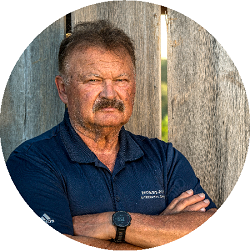
Rudi Roeslein is founder and CEO of Roeslein & Associates (1990) and sister company Roeslein Alternative Energy (2012). Roeslein and RAE develop and operate renewable energy production facilities that convert agricultural and industrial wastes, along with renewable biomass feedstocks, into renewable natural gas and sustainable co-products. Operations focus on ecological and economical sustainability, protection and restoration of the environment and ecosystems, and collaboration for risk reduction and mutual benefit. Beyond the millions of tons of CO2-equivalent methane captured, diesel-gallon equivalents created, and native prairie acres restored, Roeslein and RAE have demonstrated innovation in achieving the first CARB (California Air Resources Board) swine pathway registration and the lowest CI (carbon intensity) score for CARB swine pathway ever achieved.
Roeslein has been recognized for turning environmentally problematic situations into wins for investors, community members, and the environment with awards such as the National Lewis and Clark Conservation Award, Conservation Federation of Missouri Air Conservationist of the Year, BBI International Groundbreaker of the Year, and American Biogas Council (ABC) “Friend of the ABC.”
Registration
Registration for the conference is now closed.
Conference registration has two tiers: professional and student. Registration is $300 for professionals and $150 for students; early bird registration is $200 and $100, respectively. Early bird registration is available through Friday, Oct. 6, after which the full registration price will be available.
Please note: While U.S. EPA Region 7 is also a co-host for this conference, all registration fees collected will go solely toward defraying conference expenses incurred by Iowa State University. EPA Region 7 will provide its own funding for its participation in the conference and will not receive any funding from the registration fees collected by Iowa State University.
Introduction to Anaerobic Digstion
The anaerobic digestion (AD) process relies on microbes to break down organic matter in a sealed reactor without oxygen. Organic inputs may include a variety of materials, such as animal manure, dedicated grassy biomass, food waste, and wastewater biosolids. Outputs include methane-rich biogas and digestate, which may be used to make a variety of products. (See infographic at right.)
Additional products may be made from biogas and digestate, such as soil amendments, fertilizer, animal bedding, electricity, heat, and vehicle fuel.
Anaerobic Digestion Resources
- Pre-Conference Presentation: Introduction to Anaerobic Digestion (pdf)
- Government Resources for Identifying AD Project Financing (pdf)
- Anaerobic Digestion Virtual Tours at Conference (YouTube playlist)
- Conference Keynote Lecture – Methane Reduction: The Fastest Way to Reduce Global Warming by Marcelo Mena-Carrasco, CEO of the Global Methane Hub
- Iowa State University Bioeconomy Institute
- EPA’s Anaerobic Digestion page
- AgSTAR: Biogas Recovery in the Agriculture Sector
- ISU’s Anaerobic Digestion page
- Grass2Gas: A USDA-NIFA Sustainable Agricultural Systems Project – ISU
Disclaimer: Links to websites outside the EPA website are provided for the convenience of the user and do not constitute an endorsement of the website, author, or site content. EPA does not assume responsibility for errors or omissions in this information. Opinions and information presented do not reflect the views of U.S. EPA or the U.S. government. EPA cannot attest to the privacy protection nor the accuracy of information provided by a third-party site or any other linked site. EPA does not exercise any editorial control over the information that may be found at any non-EPA website. Under federal ethics rules, EPA and its employees do not endorse the product, services, or enterprises of non-federal entities.

